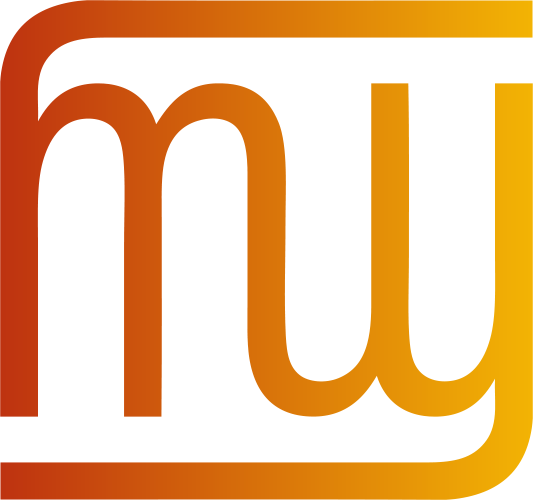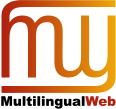 The W3C Internationalization (I18n) Activity works with W3C working groups and liaises with other organizations to ensure Web technologies work for everyone, regardless of their language, script, or culture.
The W3C Internationalization (I18n) Activity works with W3C working groups and liaises with other organizations to ensure Web technologies work for everyone, regardless of their language, script, or culture.
From this page you can find articles and other resources about Web internationalization, and information about the groups that make up the Activity.
Read also about opportunities to participate and fund work via the new Sponsorship Program.
What the W3C Internationalization Activity does
Selected quick links
Selected quick links
Selected quick links
Registrations are filling up for the MultilingualWeb workshop in Limerick, 21-22 Sept.

Register now if you want to ensure that you get a place.
Participation in the workshop is free, but spaces are limited. We have another great program in place.
The keynote speaker will be Daniel Glazman, of Disruptive Innovations, and co-chair of the W3C CSS Working Group. He is followed by a strong line up in sessions entitled Developers, Creators, Localizers, Machines, Users, and Policy. On the morning of the second day Jaap van der Meer of TAUS will facilitate “Open Space” style discussion sessions, where workshop participants themselves will choose topics to discuss in several breakout groups.
There will be a dinner reception on the evening of 21 September (free of charge, workshop registrants only).
The MultilingualWeb workshops, funded by the European Commission and coordinated by the W3C, look at best practices and standards related to all aspects of creating, localizing and deploying the multilingual Web. The workshops are successful because they attracted a wide range of participants, from fields such as localization, language technology, browser development, content authoring and tool development, etc., to create a holistic view of the interoperability needs of the multilingual Web.
This workshop is co-located with the 16th Annual LRC Conference, and hosted by the LRC (Language Research Centre) and the University of Limerick.
We look forward to seeing you in Limerick!
New translations into Russian and Ukrainian
Ukrainian:
Робота з Складеними Повідомленнями (Working with Composite Messages)
Повторне Використання Рядків в Скриптовому Контенті (Re-using Strings in Scripted Content)
Ruby (Ruby)
Розмітка і Стилізація Ruby (Ruby Markup and Styling)
Використання <b> та <i> елементів (Using <b> and <i> elements)
Неанглійські теги (Non-English tags)
Перевірка Заголовків HTTP (Checking HTTP Headers)
Russian:
Работа с Составными Сообщениями (Working with Composite Messages)
Повторное Использование Строк в Cкриптовом Контенте (Re-using Strings in Scripted Content)
Ruby (Ruby)
Разметка и Стилизация Ruby (Ruby Markup and Styling)
Использование <b> и <i> элементов (Using <b> and <i> elements)
Неанглийские тэги (Non-English tags)
The following Russian translation was also updated:
Проверка заголовков HTTP (Checking HTTP Headers)
These articles were translated thanks to Alexandr Shlapak.
For review: 1 new and 3 updated articles about language declarations in HTML
Comments are being sought on the following new articles prior to final publication. NOTE THAT the articles are in a temporary location, and will be moved to their final location after the review.
-
Working with language in HTML (tutorial format)
This is a reworking of an existing tutorial to conform to the new tutorial format. It will replace the old version.
-
Why use the language attribute?
This is a reworking of an existing article to bring it up to date. It will replace the old version.
-
This is a new article derived from information that was originally in the tutorial mentioned above. The information has been rewritten, and changes have been made to reflect recent developments for HTML5.
-
HTTP and meta for language information
This is a reworking of an existing article to reflect recent developments in HTML5 and improve the fit with other pages listed here. It will replace the old version.
All articles use a new template with additional change to the boilerplate code. They are written in HTML5.
Please send any comments over the next two weeks to www-international@w3.org (subscribe).
We hope to publish a final version shortly after the end of the review period.
New article: Personal names around the world
How do people’s names differ around the world, and what are the implications of those differences on the design of forms, databases, ontologies, etc. for the Web?
People who create web forms, databases, or ontologies are often unaware how different people’s names can be in other countries. They build their forms or databases in a way that assumes too much on the part of foreign users. This article introduces you first to some of the different styles used for personal names, and then some of the possible implications for handling those on the Web.
By Richard Ishida, W3C.
New translation into German
Angabe der Zeichencodierung in HTML (Declaring character encodings in HTML)
This article was translated into German thanks to Gunnar Bittersmann.
New translations into Russian and Ukrainian
Ukrainian:
xml:lang в схемах XML документа (xml:lang in XML document schemas)
HTTP та meta для мовної інформації (HTTP and meta for language information)
Використання Accept-Language для налаштування локалі (Accept-Language used for locale setting)
Відмітка тексту без мови (Tagging text with no language)
Призначення мови в XHTML і HTML (Declaring Language in XHTML and HTML)
Розуміння Нових Language Тегів (Understanding the New Language Tags)
Language теги в HTML та XML (Language tags in HTML and XML)
Вибір language Тега (Choosing a Language Tag)
Двобуквені або трибуквені мовні коди (Two-letter or three-letter language codes)
Чому використовувати language атрибут? (Why use the language attribute?)
Налаштування мовних уподобань в браузері (Setting language preferences in a browser)
Russian:
xml:lang в схемах XML документа (xml:lang in XML document schemas)
HTTP и meta для речевой информации (HTTP and meta for language information)
Использование Accept-Language для настройки локали (Accept-Language used for locale setting)
Отметка текста без языка (Tagging text with no language)
Назначение языка в XHTML и HTML (Declaring Language in XHTML and HTML)
Понимание Новых Language Тэгов (Understanding the New Language Tags)
Language тэги в HTML и XML (Language tags in HTML and XML)
Выбор language Тэга (Choosing a Language Tag)
Двухбуквенные или трехбуквенные языковые коды (Two-letter or three-letter language codes)
Зачем использовать language атрибут? (Why use the language attribute?)
Настройка языковых предпочтений в браузере (Setting language preferences in a browser)
These articles were translated thanks to Alexandr Shlapak.
New translations into Swedish
Att sätta charset-parametern i HTTP (Setting the HTTP charset parameter)
Att välja & använda en teckenkodning (Choosing & applying a character encoding)
These articles were translated into Swedish thanks to Olle Olsson.
Initial program published for MultilingualWeb Workshop in Limerick

An initial program has been published for the upcoming W3C MultilingualWeb workshop in Limerick, Ireland, 21-22 September 2011. (Co-located with the 16th Annual LRC Conference.)
The keynote speaker will be Daniel Glazman, of Disruptive Innovations, and co-chair of the W3C CSS Working Group. He is followed by a strong line up in sessions entitled Developers, Creators, Localizers, Machines, Users, and Policy.
See the Call for Participation for details about how to register for the workshop. Participation in the workshop is free.
The MultilingualWeb workshops, funded by the European Commission and coordinated by the W3C, look at best practices and standards related to all aspects of creating, localizing and deploying the multilingual Web. The workshops are successful because they attracted a wide range of participants, from fields such as localization, language technology, browser development, content authoring and tool development, etc., to create a holistic view of the interoperability needs of the multilingual Web.
We look forward to seeing you in Limerick!
New translations into Romanian
Controlere Unicode vs. marcare pentru sprijinul bidi (Unicode controls vs. markup for bidi support)
Dimensiunea textului in traduceri (Text size in translation)
O introducere in Adresele Web Multilingve (An Introduction to Multilingual Web Addresses)
These articles were translated into Romanian thanks to Costea Marian.
Draft for review: Personal names around the world
Comments are being sought on the article Personal names around the world prior to final release. This article addresses the question “How do people’s names differ around the world, and what are the implications of those differences on the design of forms, ontologies, etc. for the Web?”.
Please send any comments to www-international@w3.org (subscribe) by 7th August.
By Richard Ishida, W3C.